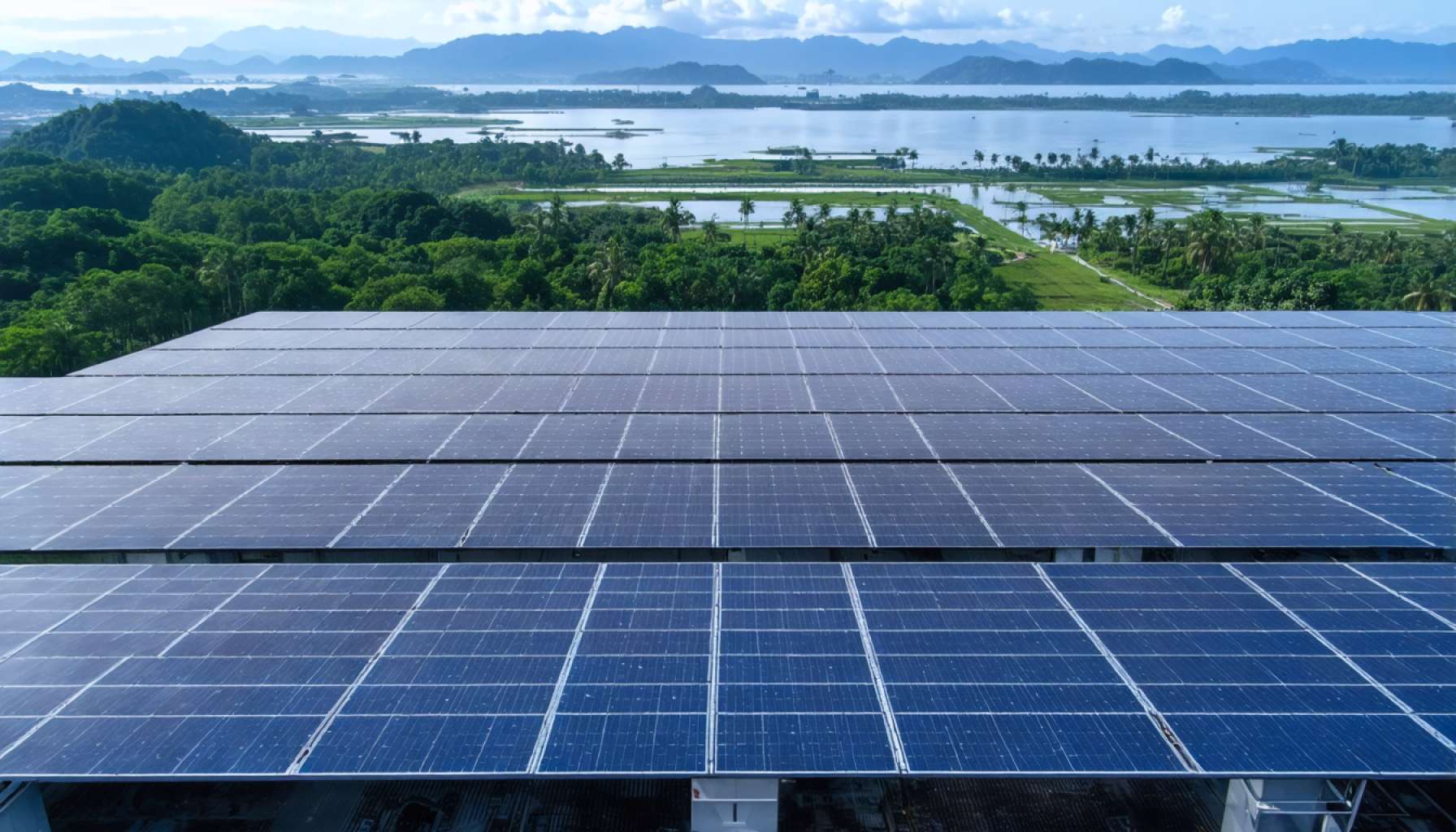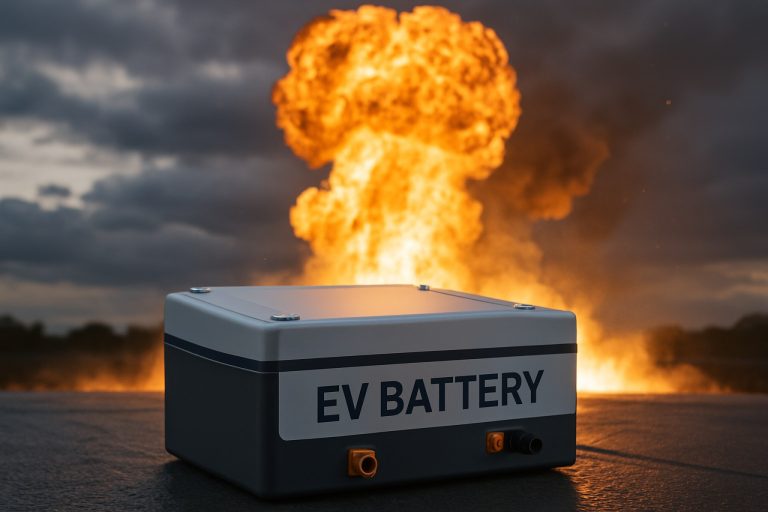
- China’s Zhejiang Huayou Cobalt replaces LG Energy Solution in Indonesia’s $9.8 billion EV battery project, marking a significant strategic move in the global EV industry.
- Indonesia, with its vast nickel reserves, is positioning itself as a crucial player in the renewable energy sector by attracting international investment.
- China’s involvement reaffirms its influence over the EV supply chain, strengthening its hold on the green technology industry as global economies transition from fossil fuels.
- The U.S. and China are engaged in a strategic competition, with each seeking to control pivotal industries and supply chains.
- Emerging economies like Indonesia are capitalizing on geopolitical shifts to drive economic growth and influence the future of energy dynamics.
- The partnership between China and Indonesia highlights a new global dynamic, emphasizing sustainability and innovation in the EV landscape.
In a strategic coup that reverberates through the global electric vehicle (EV) industry, China’s Zhejiang Huayou Cobalt has taken center stage in Indonesia’s ambitious $9.8 billion EV battery supply chain project. With seasoned precision and foresight, China is not merely participating in the EV revolution—it is shaping its contours. This shift comes as Huayou Cobalt steps in to replace South Korea’s LG Energy Solution, a move confirmed by Indonesia’s Energy and Mineral Resources Minister, Bahlil Lahadalia, assuring the project advances undeterred.
Picture a sprawling landscape of nickel-rich lands across Indonesia, sitting at the heart of an electrifying transformation. Indonesia, an archipelago renowned for its abundant natural resources, is emerging as a critical global player in the supply of battery metals, positioning itself as a nucleus in the fast-paced race toward renewable energy. With one of the world’s largest reserves of nickel, a vital component in lithium-ion batteries, Indonesia is leveraging its natural wealth to attract international investment and propel its economy into the green revolution.
Zhejiang Huayou Cobalt’s entry is more than just a corporate reshuffle; it marks a deliberate stride by China to consolidate its influence over the EV supply chain. As the world pivots from fossil fuels, China’s strategic alliances and investments are creating a new Silk Road—this time, in lithium and cobalt rather than silk and spices. Armed with the financial muscle and industrial expertise, Huayou’s operations will bolster an infrastructure that ensures Indonesia remains a cornerstone in the global energy transition.
The implications of this realignment stretch beyond mere business logistics. As the U.S. and China vie for technological supremacy in the 21st century, each plays its hand in a strategic game of chess on a global stage. While Washington seeks to diversify its channels, reducing dependency on Chinese-dominated supply chains, Beijing’s steadfast approach reaffirms its commitment to maintaining a stronghold in pivotal industries such as green technology.
Past the metallic glint of cobalt and the chemical complexities of nickel extraction lies a broader narrative—a testament to how developing nations are harnessing geopolitical opportunities to redefine their futures. With China’s assertive participation, Indonesia stands poised to not only accelerate its economic growth but also to influence the trajectory of modern energy dynamics.
The global shift towards EVs is inexorable, riding on the currents of innovation and sustainability. And at this pivotal junction, Indonesia’s thriving partnership with China may well serve as a herald of how nations will navigate the inevitable transformation. A new age is dawning—a future where the lines of competition and collaboration are redrawn, dictated not just by geographic borders but by shared ambitions of a cleaner, more interconnected world.
As the dust settles on this evolving landscape, the key takeaway is unambiguous: those who control the supply today will determine the pace and influence of technological progress tomorrow.
New Player in Global EV Supply Chain: What Huayou Cobalt Means for Indonesia’s Future
Understanding the Shift in the EV Industry
The entry of Zhejiang Huayou Cobalt into Indonesia’s $9.8 billion EV battery supply chain project highlights a strategic pivot in the global electric vehicle (EV) industry. This move underscores China’s ambition to solidify its influence in the global EV market, as Huayou Cobalt fills the role previously held by South Korea’s LG Energy Solution. With vast nickel reserves crucial for lithium-ion batteries, Indonesia is fast becoming a key player in the transition to renewable energy.
The Significance of Nickel in the EV Landscape
Nickel is pivotal in enhancing the energy density and storage capacity of lithium-ion batteries, which are essential for EVs. Indonesia harbors one of the largest nickel reserves worldwide, making it a strategic partner for nations aiming to lead the EV revolution. By investing in Indonesia’s mining and processing capabilities, Zhejiang Huayou Cobalt and, by extension, China, are establishing a stronghold in the supply of battery materials.
Geopolitical and Strategic Implications
As the race for technological and economic supremacy intensifies, the U.S. and China are strategically repositioning themselves on the global stage. China’s foray into Indonesia’s battery supply chain is not merely about economics but also geopolitics. While Beijing strengthens its supply chain control, the U.S. is exploring initiatives to reduce reliance on Chinese-sourced materials, seeking alternative paths to secure raw materials essential for its own EV ambitions.
Market Forecast and Industry Trends
1. Growth in Electric Vehicle Adoption: As environmental regulations tighten and consumer demand for sustainable transport increases, the EV market is expected to grow exponentially, with Indonesia playing a pivotal role in supplying key materials.
2. Increased Investment in Mining and Processing: With Indonesia’s nickel being highly sought after, stakeholders are expected to increase investments in modernizing and expanding extraction and processing facilities, potentially bringing more employment and economic development to the region.
3. Shift Towards Green Energy Technologies: Global focus is veering more towards sustainable energy technologies, and partnerships like that of Indonesia and China could set benchmarks for similar advancements in other nations.
Challenges and Environmental Considerations
While the development of Indonesia’s mining sector could bolster its economy, it must balance this with environmental sustainability. Intensive mining activities can lead to ecological damage, and Indonesia must implement policies to ensure sustainable practices. China’s track record on environmental issues will be closely scrutinized as it ramps up mining activities in the region.
Actionable Recommendations
– For Investors: Consider opportunities in EV supply chain industries and look for investments in nickel mining and processing, as these are likely to grow due to increasing EV production.
– For Policy Makers: Focus on crafting regulations that ensure sustainable mining practices to protect the environment while capitalizing on economic opportunities.
– For Environmental Advocates: Encourage transparency and advocacy to ensure mining practices in Indonesia meet international environmental standards.
– For Industry Leaders: Explore collaborative ventures with Indonesian firms to leverage local resources while ensuring the adoption of best practices for sustainability.
For further reading on electric vehicles and China’s technological advancements, visit the official Tesla website or China EV 100.
Indonesia’s strategic ventures in the EV space spearheaded by Zhejiang Huayou Cobalt not only redefine its role in the global market but also showcase the inevitable shift towards a sustainable and interconnected world. Stakeholders in the EV ecosystem should watch these developments closely and be prepared to adapt to the new realities of a rapidly evolving market.



